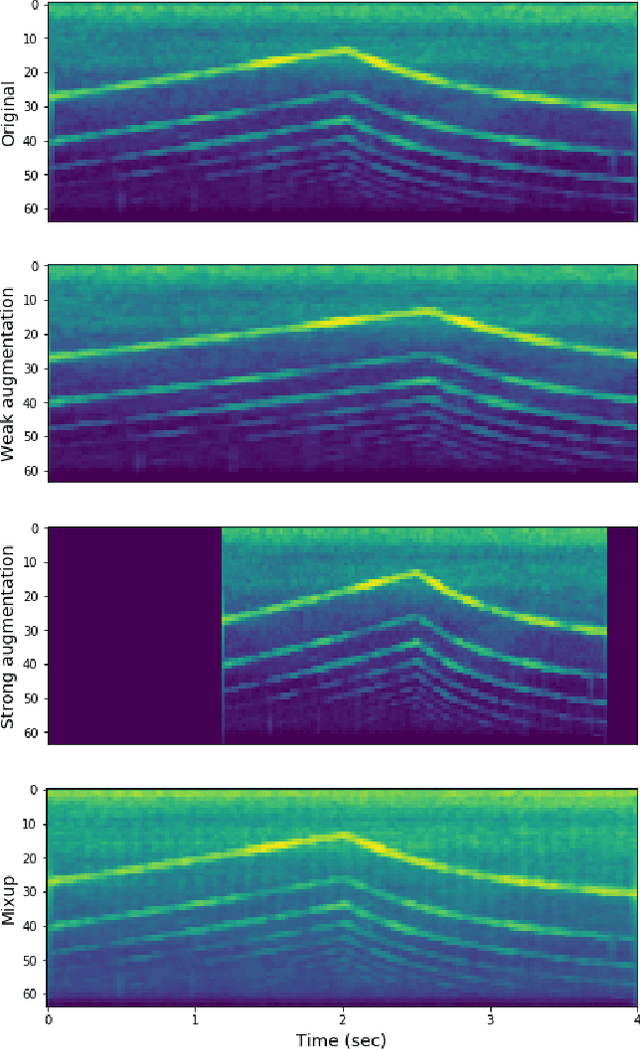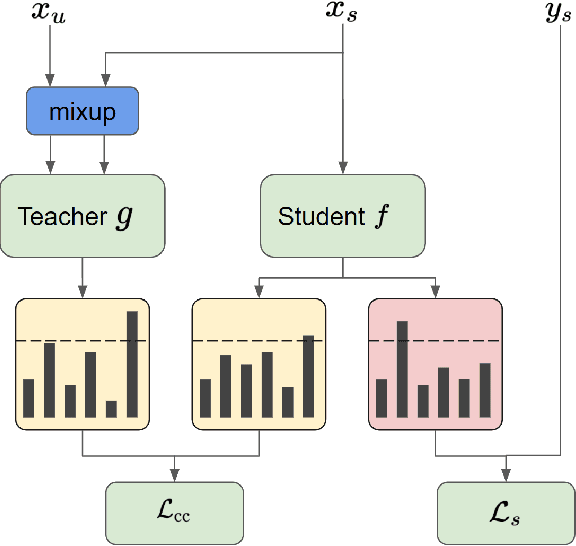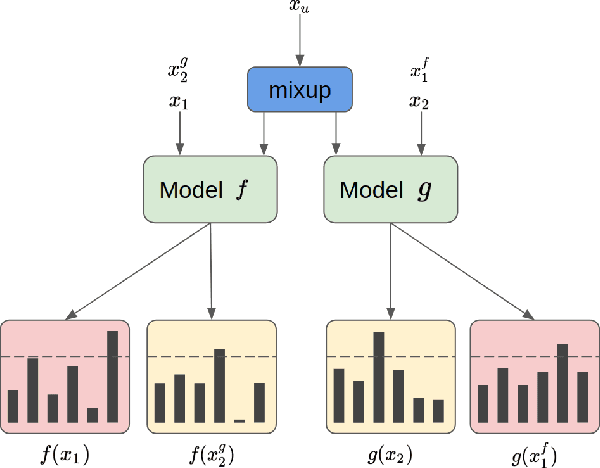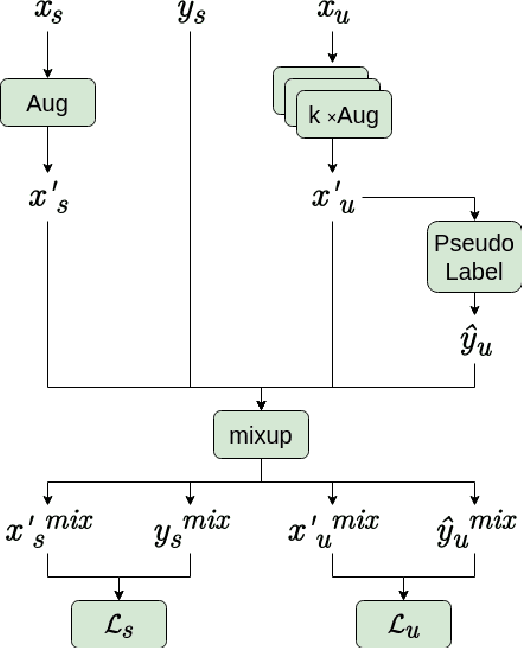Léo Cances
Improving Deep-learning-based Semi-supervised Audio Tagging with Mixup
Feb 16, 2021



Abstract:Recently, semi-supervised learning (SSL) methods, in the framework of deep learning (DL), have been shown to provide state-of-the-art results on image datasets by exploiting unlabeled data. Most of the time tested on object recognition tasks in images, these algorithms are rarely compared when applied to audio tasks. In this article, we adapted four recent SSL methods to the task of audio tagging. The first two methods, namely Deep Co-Training (DCT) and Mean Teacher (MT) involve two collaborative neural networks. The two other algorithms, called MixMatch (MM) and FixMatch (FM), are single-model methods that rely primarily on data augmentation strategies. Using the Wide ResNet 28-2 architecture in all our experiments, 10% of labeled data and the remaining 90\% as unlabeled, we first compare the four methods' accuracy on three standard benchmark audio event datasets: Environmental Sound Classification (ESC-10), UrbanSound8K (UBS8K), and Google Speech Commands (GSC). MM and FM outperformed MT and DCT significantly, MM being the best method in most experiments. On UBS8K and GSC, in particular, MM achieved 18.02% and 3.25% error rates (ER), outperforming models trained with 100% of the available labeled data, which reached 23.29% and 4.94% ER, respectively. Second, we explored the benefits of using the mixup augmentation in the four algorithms. In almost all cases, mixup brought significant gains. For instance, on GSC, FM reached 4.44% and 3.31% ER without and with mixup.
 Add to Chrome
Add to Chrome Add to Firefox
Add to Firefox Add to Edge
Add to Edge